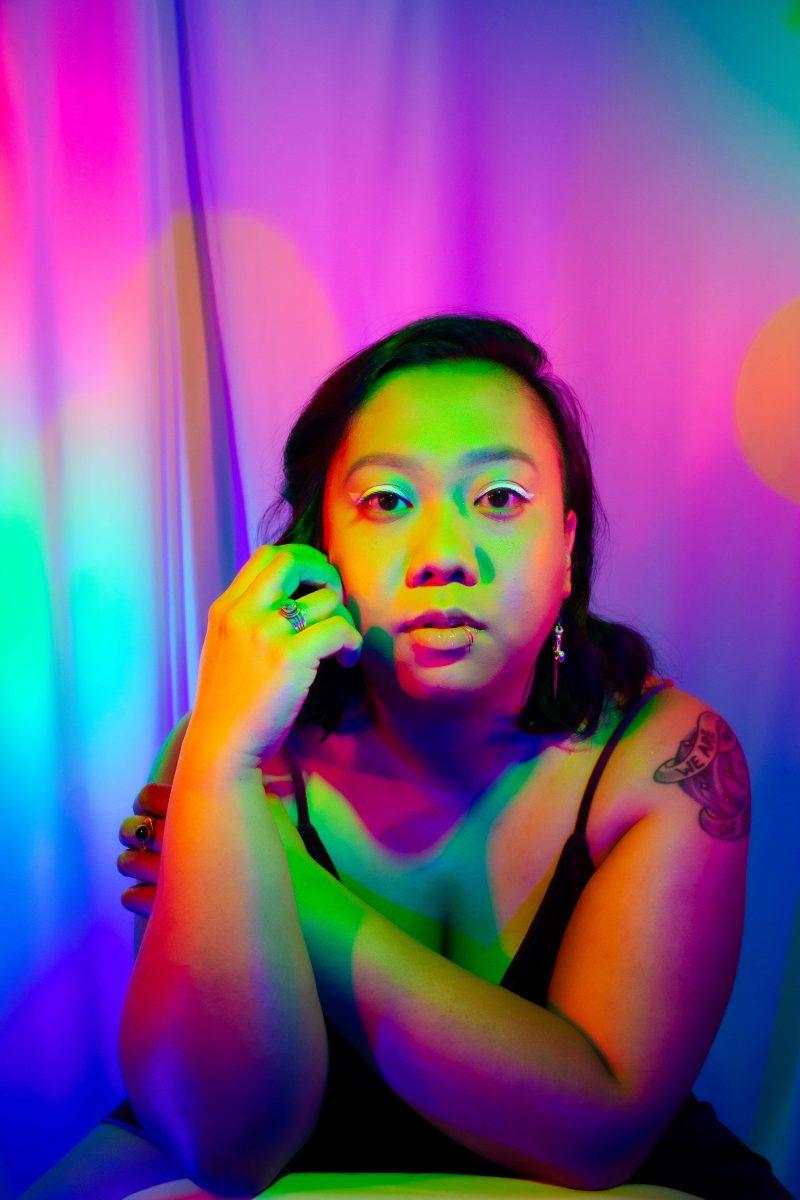
Courtesy of Sass Art
ina carino headshot
Ina Cariño’s poetry strikes a delicate balance between personal and unique experiences and the shared struggle of minorities in a predominantly white culture. Though still in the early years of their writing career, Cariño has not only developed a distinct poetic voice but also grown into a distinct sense of self through embracing their writing.
Since earning their master’s in creative writing from NC State in 2019, Cariño has had poetry published in numerous literary journals, been named a Kundiman Fellow and won the 2021 Alice James Award for their manuscript “Feast” which examines the importance of intergenerational nourishment, particularly with regards to matrilineal bloodlines.
Cariño said much of their initial draw toward writing came from their mother, who is also a poet and writer.
“My mom would often tell me and my sisters folk tales and read us poems,” Cariño said. “We were really encouraged to read widely and often and so, in time, I was drawn to writing because of my love for literature in general.”
Through their poetry, Cariño addresses the rippling effects of identity, origin and family, particularly as they relate to immigrants’ experiences in the United States. Cariño moved to the United States from the Philippines when they were 10 years old and now uses their poetry to explore how to balance the complex identities that come with immigration while learning about and connecting with their roots.
“My purpose is not just to write for other people but also for myself,” Cariño said. “And I don’t mean in a way that is therapeutic. I want to learn more about the world through myself and vice versa. How can my history and my ancestry inform my work, and how can I, in turn, inform perception of my work through craft and through writing about these things?”
To this end, Cariño’s work looks at the ideas of ownership and belonging, examining both through the lens of their own ancestry.
“I’m interested in naming and claiming,” Cariño said. “My last name, Cariño, is a Spanish word. It means darling or sweetie. It’s a term of endearment. And it’s also a sign of being under Spanish colonial rule for so many hundreds of years.”
Cariño is a descendant of Mateo Cariño, a Ibaloi chieftain best known for being part of a case establishing the precedent of native title in the U.S. Supreme Court, which gives Indigenous people ownership of Indigenous land if they prove they have lived there for a certain amount of time.
“If you look at the root of that argument, you’re basically saying Indigenous people can live here because they’ve lived here,” Cariño said. “Which is not only redundant, it’s also a very narrow ruling. I think that it reeks of imperialism.”
Cariño takes research and stories of their lineage and weaves them together with personal experience of intolerance and bias to create graceful and honest images of existing in a place that considers you as “other.”
“I write about the small microaggressions because collectively, they paint a bigger picture of what it’s like to be in this country as an immigrant,” Cariño said.
Beyond their writing, Cariño believes creating community is vital to stability and success. They are the founder of Indigena Collective, which is a reading series specifically geared towards providing a platform to marginalized voices. Cariño founded the collective when they noticed a lack of community surrounding marginalized artists in the Raleigh area.
“I welcome both established and emerging writers,” Cariño said. “One of the goals that I had in mind with this is to not gatekeep depending on someone’s skill level or their education. I don’t want to be elitist in any way because that’s not the point of it. The point of this is to give these voices a dedicated space carved out just for them.”
Cariño’s work both through their writing and with the reading series is an opportunity for conversation and new perspectives. They feel that the process of reading and contemplating a poem is more important than any theme that their poems could hold as an entity of their own.
“Even if you don’t convince the reader in the end it’s still a conversation,” Cariño said. “Poetry is a conversation to me. If you have your poem in a book or online published somewhere, the cool thing about it is that someone else can pick up that book and read it, and you might not know what they’re saying, but their thoughts are a conversation with that work.”